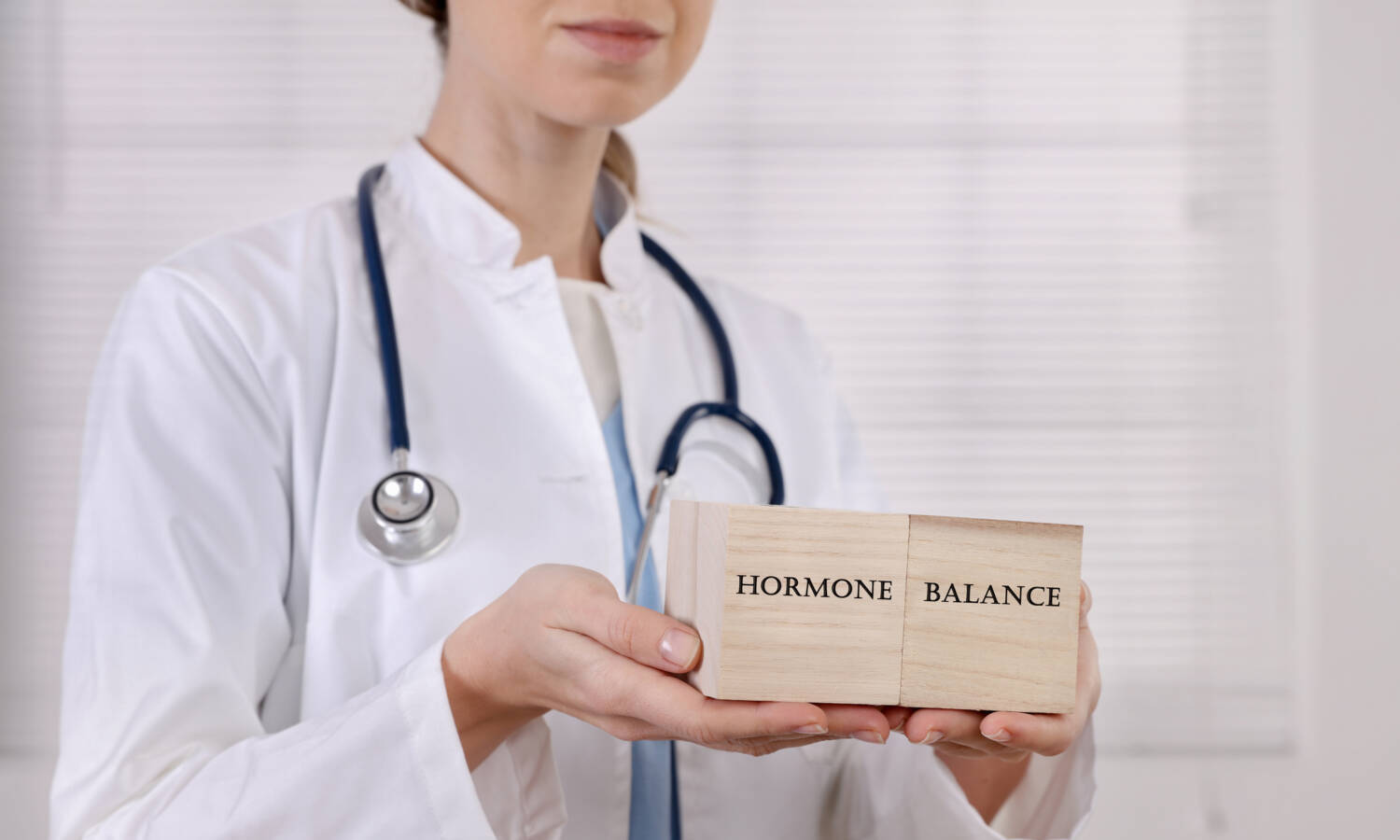When cannabinoids interact with the neurotransmitters in the brain, it helps correct the over- or underproduction of any hormones.
This article originally appeared on Cannabis.net and has been reposted with permission.
Hormonal imbalances happen in the human body when we either have too little or too much of one or more hormones.
Since hormones play such an important role in regulating our health, the mildest hormonal imbalance can already cause problems. That’s because hormones, which are produced in the endocrine system, are essential for delivering messages to the various organs around the body, advising them what to do and when it should be done. Major bodily processes rely on regulated hormones for many functions such as our overall metabolism, blood pressure, reproductive cycles, stress management, mood, and more.

Both men and women are prone to hormonal imbalances; women are vulnerable to imbalances affecting their progesterone and estrogen, while men can suffer from testosterone imbalances. Symptoms of hormonal imbalances vary widely depending on the hormones affected but these can include weight gain, acne, reduced sex drive, thinning hair, and much more.
In addition, there are some health problems that can also cause hormonal imbalances. These include polycystic ovary syndrome, diabetes, tumors in the endocrine glands, Addison’s disease, overactive or underactive thyroids, Cushing’s syndrome, and more.
How Cannabis Can Help
The endocannabinoid system plays a role in regulating our hormone production. The human body has CB1 and CB2 receptors located throughout; these are two kinds of cannabinoid receptors that bind with the cannabinoids in the cannabis plant when we consume them. Both tetrahydrocannabinol (THC) and cannabidiol (CBD) bind with these hormones in the body, helping to stabilize the endocannabinoid system which then regulates the hormones through the many functions it supports: appetite, pregnancy, mood, fertility energy, immunity, and overall homeostasis.
The association between the endocrine processes and the endocannabinoid system has been confirmed by research. “We know that the endocannabinoid system has a role in maintaining balance in the body. It also makes sure our body is acting within a narrow range of operating conditions; so-called homeostasis,” explained cannabinoid specialist Dr. Moltke. “The ECS is known to regulate stress, mood, fertility, bone growth, pain, immune function, among other things. CBD interacts with the ECS and with many other receptors in the body,” she says.
There are numerous studies showing how cannabis can help regulate hormonal balance. These studies note how the body experiences restoration after using CBD or cannabis with THC, which occurs because when cannabinoids interact with the neurotransmitters in the brain, it helps correct over or underproduction of any hormones.
Here are some hormone-related conditions cannabis can treat.
Menstrual Pain
Millions of women around the world suffer from pains caused by their periods. Whether it’s mild pain or debilitating pain, cannabis can help with PMS pain. Most of these menstrual pain cases arise because the prostaglandins increase while progesterone declines when women go through their monthly periods. The combination of these chemicals result in more inflammation while making women more sensitive to pain as well as contribute to uterine contractions, cramps, and constriction in the blood vessels.

Studies show that CBD helps reduce pain and inflammation that arises due to dysmenorrhea because of its interaction with neurotransmitters. Additionally, women who have chronic pain and headaches have found relief with CBD. Other studies show that CBD effectively inhibits the production of COX-2, an enzyme that triggers the production of prostaglandin. The less COX-2 levels there are, the less pain, cramping, and inflammation occurs.
Thyroid Hormones
The thyroid is the name of an important endocrine gland located in the base of the neck. This gland is critical for regulating many other hormones for major bodily functions as well as those that affect heart health, bone density, and metabolic rate. Furthermore, the thyroid gland is linked to the brain, and when there is homeostasis in the body, all functions work well.
RELATED: 3 Ways Cannabis Can Help The Ladies Live Their Best Life
However, dysfunctions in the thyroid gland can arise in over or underactive thyroids which then cause many other health problems. Since the endocannabinoid system also helps to regulate the thyroid, using cannabinoids can help manage the symptoms of thyroid disruptions. The studies analyzing the link between CBD and thyroid disorders is still in its early stages but what we see so far is promising, showing that this cannabinoid is indeed safe and effective for its management.
In 2015, a study revealed that the thyroid glands are home to a concentration of CB1 and CB2 receptors. These were also associated with thyroid tumor shrinkages, which also mean that it has the potential to reduce tumors. There are also other studies showing that CBD is beneficial for thyroid health because CB1 receptors helped to regulate T3 and T4 thyroid hormones.
Cortisol
Cortisol, the stress hormone, is important for letting us know if there is upcoming danger. Oftentimes, especially people who have PTSD and have been exposed to chronic stress and danger, cortisol levels stay high or are easily triggered.
RELATED: More And More Women Are Taking CBD As A Daily Supplement — Here’s Why
CBD is renowned for its ability to relax and relieve stress. It helps calm down the GABA neurotransmitters, which then slow down the nervous system. CBD also impacts the cannabinoid receptors located in the hypothalamus, which is the part of the brain that is linked to the adrenal glands. Because of this interaction, cortisol production is reduced, thus allowing us to relax.
Using Cannabis For Hormonal Imbalances
These are just some of the many processes that cannabis can help when it comes to regulating hormones. Cannabidiol in particular is effective for stress reduction, improved sleep, anxiety relief, inflammation relief, and overall metabolic health improvement, which work hand in hand for improving your hormones.
This article originally appeared on Cannabis.net and has been reposted with permission.


